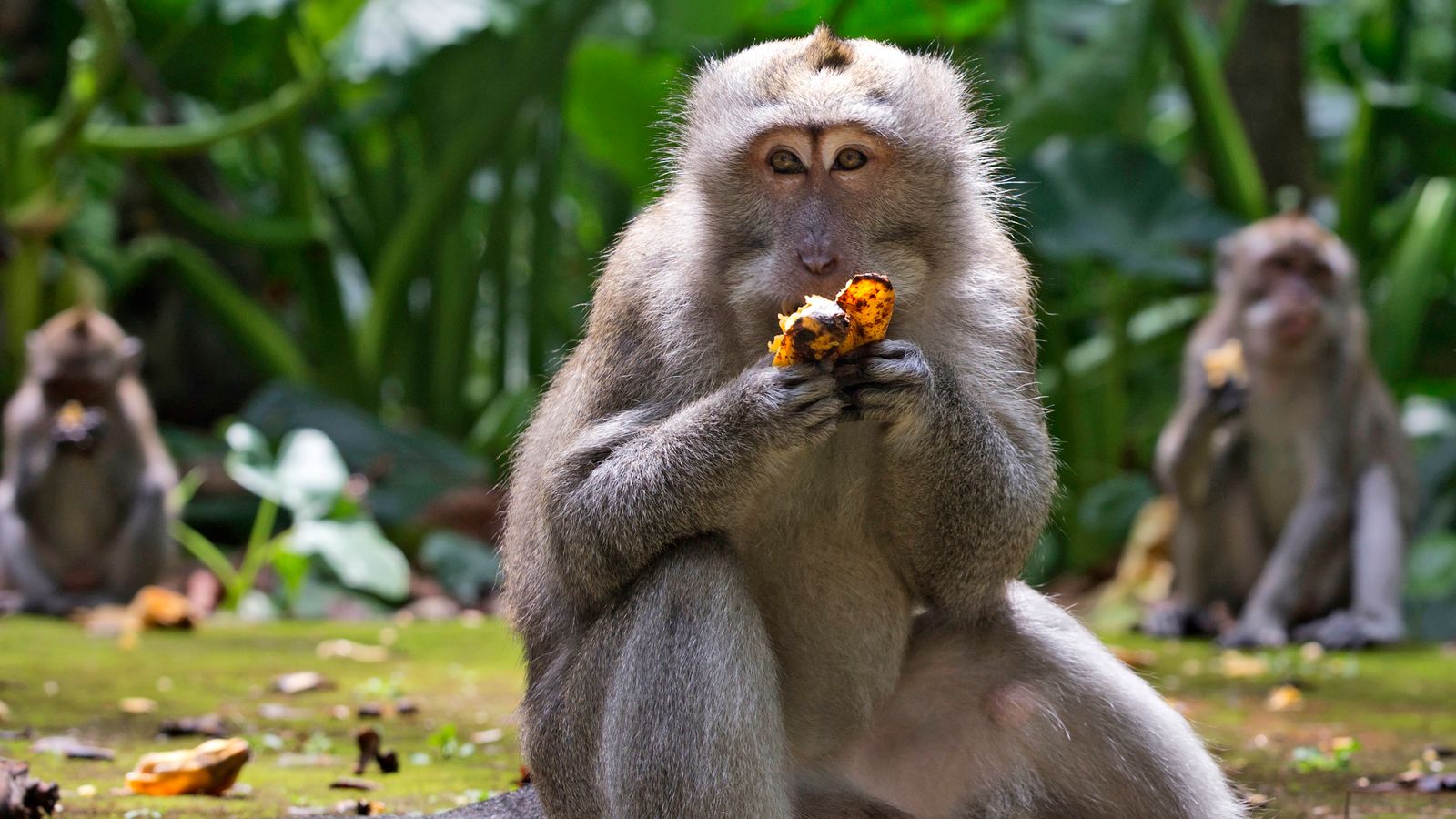Monkeys on the once-popular resort island of Bali in Indonesia have been spotted raiding homes in search of food.
COVID-19 has meant tourists have been unable to visit the South East Asian island, meaning that grey long-tailed macaques in Sangeh’s monkey sanctuary have been deprived of food from generous visitors.
Villagers say the monkeys have been seen venturing out from a forest and on to roofs, looking for food.
Live COVID updates from the UK and around the world
Residents have been taking fruit, peanuts, and other food to the Sangeh Monkey Forest to try to stop the monkeys from raiding homes.
“We are afraid that the hungry monkeys will turn wild and vicious,” villager Saskara Gustu Alit said.
Almost 600 macaques live in the forest sanctuary, which is also home to the Pura Bukit Sari temple.
The animals are considered sacred – and in pre-pandemic times, the protected jungle was popular with tourists, who would feed the monkeys.
Tourism is the main source of income for Bali, and more than five million visitors a year went to the island before the pandemic began in early 2020.
The Sangeh Monkey Forest usually had about 6,000 visitors every month, but during the pandemic that number has dropped to 500.
In July, the Indonesian government banned foreign travellers to Bali and shut the sanctuary to local residents because of a coronavirus surge in the country.
The sanctuary has lost out on admission fees and is running low on money to purchase food for the monkeys, operations manager Made Mohon said.
“This prolonged pandemic is beyond our expectations,” she said. “Food for monkeys has become a problem.”
Food costs for the monkeys are about 850,000 rupiah (£43) a day, including 200kg (440lbs) of cassava – which is the animals’ staple food – and 10kg (22lbs) of bananas, Ms Mohon added.
Macaques are omnivores and eat a variety of animals and plants found in the jungle.
They will often leave the sanctuary and wander into the village, taking food from religious offerings people leave on their patios each day.
“A few days ago I attended a traditional ceremony at a temple near the Sangeh forest,” Gustu Alit said.
“When I parked my car and took out two plastic bags containing food and flowers as offerings, two monkeys suddenly appeared and grabbed it all and ran into the forest very fast.
“That’s why I have urged villagers here to come to the forest to play with the monkeys and offer them food.
“I think they need to interact with humans as often as possible so that they do not go wild.”






















